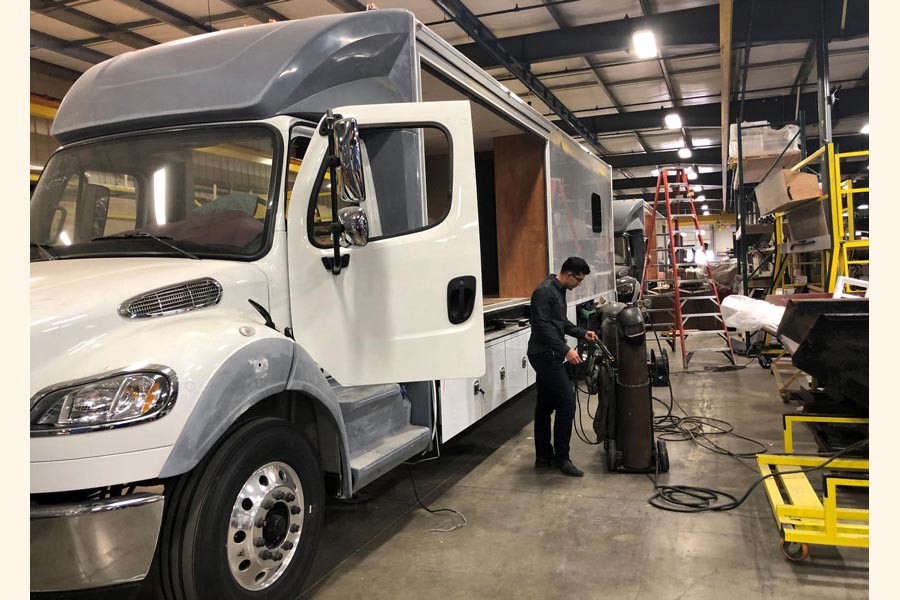Carrie Gray points to a stack of unwelcome mail on a conference table at the offices of Renegade RV, one of the leading US manufacturers of high-end recreational vehicles. She's buried in bad news from most of her about 350 suppliers, reports Reuters.
"We got letters from 75 per cent of them demanding tariff-related price increases," explains Gray, Renegade's materials manager.
About 85 per cent of the recreational vehicles sold in the United States are built in and around Elkhart County, making it a popular stop for politicians to tout their visions for US manufacturing - including President Donald Trump, who staged a rally here last May.
And yet this uniquely American manufacturing sector has been caught in the crossfire of Trump's trade war, according to interviews with industry insiders and economists, along with data showing a steep sales decline amid rising costs and consumer prices. The industry has taken hits from US tariffs on steel and aluminum and other duties on scores of Chinese-made RV parts, from plumbing fixtures to electronic components to vinyl seat covers.
Shipments of RVs to dealers have fallen 22 per cent per cent in the first five months of this year, compared to the same period last year, after slipping 4 per cent in 2018, according to the Recreational Vehicle Industry Association.
The RV industry's woes illustrate how even the most "American" of manufacturers, the kind of industries Trump has vowed to protect, can be heavily exposed to tariffs in a world of globalised supply chains.
Tariff-related price hikes have forced manufacturers to pass on some of the increased costs though higher RV prices, which in turn has contributed to slower sales. As dealers cut orders, many plants furloughed workers or reduced hours, including Renegade, which has reduced its headcount of 160 by about 10 workers since May at its two factories here.
Michael Hicks, a Ball State University economist who tracks the industry, said its decline is far worse than he or other analysts expected and could signal a wider economic downturn. RV shipments have fallen sharply just before the last three US recessions.
"The RV industry is a great bellwether of the economy," said Hicks, because the vehicles are an expensive and discretionary purchase, easily delayed by consumers who start to worry about their financial stability.
The Commerce Department said in a statement that it has "met with private industry" to hear concerns about steel and aluminum tariffs and that it has granted most US companies' requests for tariff exemptions among the applications it has fully processed.


